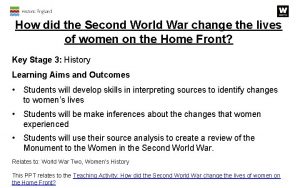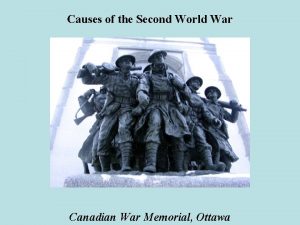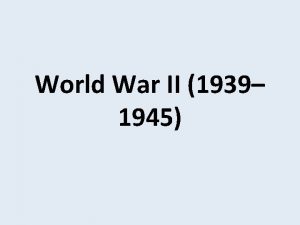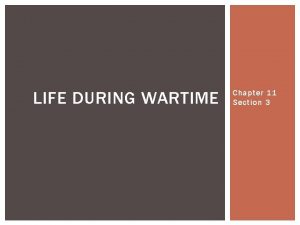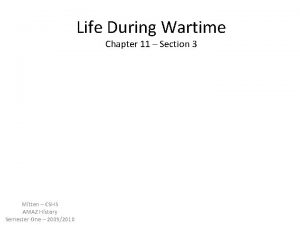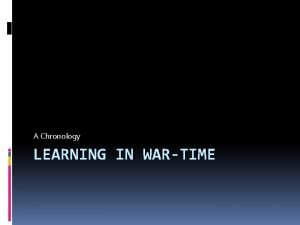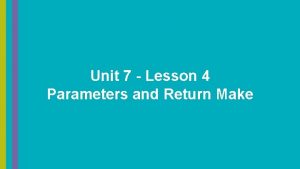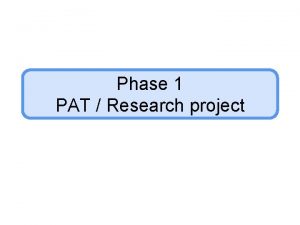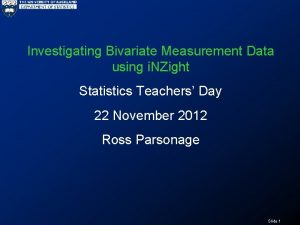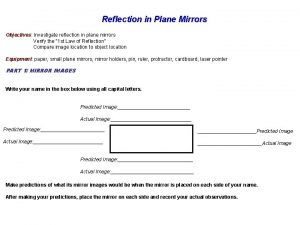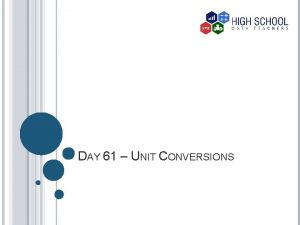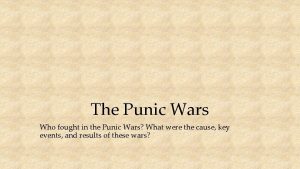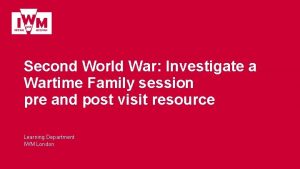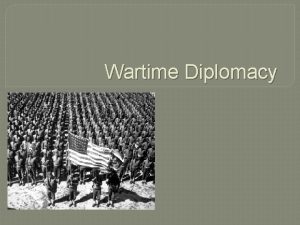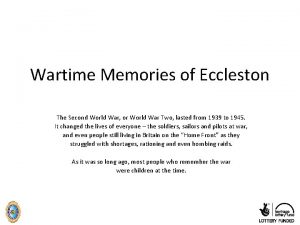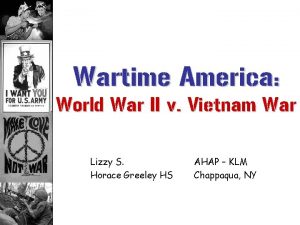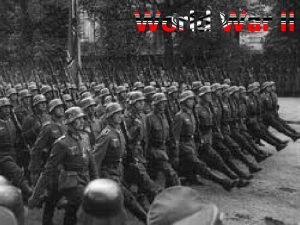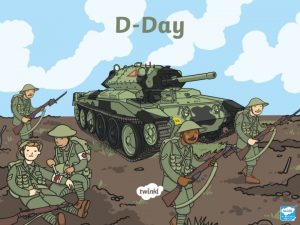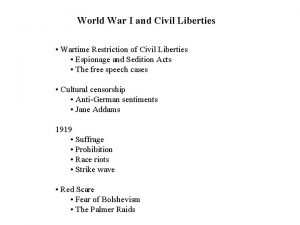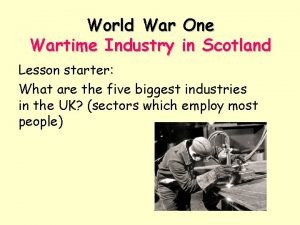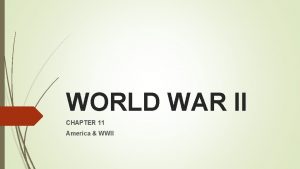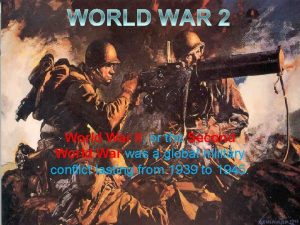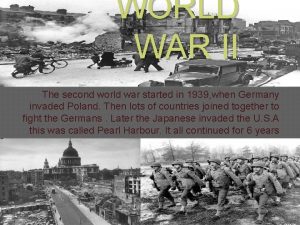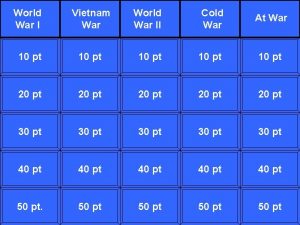Second World War Investigate a Wartime Family session


















- Slides: 18

Second World War: Investigate a Wartime Family session pre and post visit resource Learning Department IWM London

This Power. Point is designed to help students and teachers learn about the Allpress family, a typical family living through the extraordinary experience of the London Blitz. The Power. Point identifies the six different Home Front themes in the exhibition. It can be used in conjunction with the Investigate a Wartime Family Teachers’ Guidance Notes. pdf Images and information in this Power. Point can be used in this format to give a short briefing before the visit to IWM London A Family in Wartime exhibition, the Second World War: Investigate a Wartime Family session or can be used as a resource to make your own learning activities. The red slides contain contextual historical information for teachers. The images in this resource can be freely used for non-commercial use in your classroom subject to the terms of the IWM’s Non Commercial Licence: http: //www. iwm. org. uk/corporate/privacy-copyright/licence

In the Investigate a Wartime Family session students will work in groups to devise their own enquiry question based on a Home Front theme. Each theme is linked to an artefact and members of the Allpress family. Preparation for the session should cover these points, in appropriate depth for the age and ability of the students: • Look at the Allpress family tree - discuss how many children there were, the relationships between them (spot the twins) and whether any of the family are still alive • Divide the class into 6 groups and give each group a different worksheet on a Home Front theme e. g. rationing, evacuation. Each group should discuss what they think the artefact is, how it links to their theme and how the family member/s might have used it • Each group should write down possible enquiry questions for their theme. These should be openended questions. Please bring these to the museum on your visit.


The house at 69 Priory Grove, Stockwell as it looks now The model of the house


Key Facts • Alice Allpress was a housewife and the mother of 10 children • She had to shop each day and this meant queuing at the shops for hours • Many food were rationed and each member of the family had a ration book


Railways Key Facts • • • William Allpress was a train driver for Southern Railways He was too old to fight in the Second World War Driving trains was a very important wartime job and he worked long hours


Make Do and Mend Nellie, Eva and Betty Allpress Key Facts • • • Eva, Nellie and Betty Allpress made their own clothes during the Second World War and liked to look smart Everyone had a clothing ration book Clothes were re-used and never thrown away


Evacuation Key Facts • • • John Allpress was evacuated to Wokingham in September 1939 Parents were encouraged to send their children out of London to keep them safe Each child could only take one small suitcase or bag

Parents were encouraged to send their children out of the cities and into the countryside to keep them safe. However, it was their choice. Some children were even evacuated abroad to countries such as the USA and Canada. The Government split the country into three zones, evacuation, neutral and reception. It was called Operation Pied Piper and run by the Ministry of Health. Parents were given a list of items that their children should take. Most children were evacuated with their schools and teachers. John Allpress was evacuated with his school on 1 September 1939, by bus to Wokingham 40 miles away. He did not enjoy being separated from his family and was brought home after a few months. John stayed at home in Stockwell during the Blitz.

The Blitz The Allpress Family Key Facts • • • London was bombed very heavily between September 1940 and May 1941 The Allpress family spent many nights in their Anderson shelter Bombs fell very close to their house in Stockwell, London

The Blitz, the bombing of Britain’s major towns and cities, began in September 1940 and ended in May 1941. Many children who had been brought home were reevacuated. People kept safe by sheltering in Morrison, Anderson and public shelters. In London they also sheltered in the underground. On 16 April 1941 houses opposite the Allpress’s received a direct hit. This made the family decide to leave Stockwell and move further out to Wimbledon. Firebombs could cause a lot of damage, as they were dropped in large numbers. On 29 December 1940, known as the Second Great Fire of London, eight of Wren’s London City churches were destroyed. St Paul’s Cathedral was saved when a firebomb lodged in the dome fell out.

Women Helping the War Effort Nellie, Eva and Betty Allpress Key Facts • • • Nellie, Eva and Betty Allpress all had jobs. Eva worked in a clothes shop, Nellie worked in a bakery and Betty worked in a factory making seats for Lancaster bombers They also did voluntary (unpaid) war work They worked very long hours

 School uniform of sshs prior to the second world war
School uniform of sshs prior to the second world war World war 2 effects
World war 2 effects Second world war
Second world war Second world war
Second world war Siapa pemenang perang dunia 2
Siapa pemenang perang dunia 2 A wartime alliance begins to erode
A wartime alliance begins to erode Chapter 11 section 3 life during wartime
Chapter 11 section 3 life during wartime Chapter 11 section 3 guided reading life during wartime
Chapter 11 section 3 guided reading life during wartime Defence estate quality management system
Defence estate quality management system Learning in wartime
Learning in wartime Yoshiko imamoto
Yoshiko imamoto Lesson 4 parameters and return make
Lesson 4 parameters and return make Who is rumored to have killed laius?
Who is rumored to have killed laius? Initial rate of reaction
Initial rate of reaction How to investigate a problem
How to investigate a problem Bivariate measurement data
Bivariate measurement data Investigate reflection
Investigate reflection 186 282 miles per second into meters per second
186 282 miles per second into meters per second Second punic war key events and results
Second punic war key events and results


